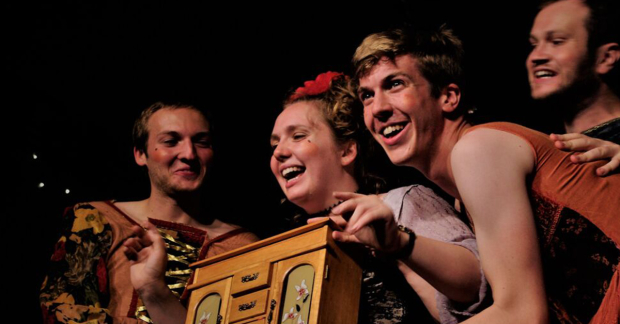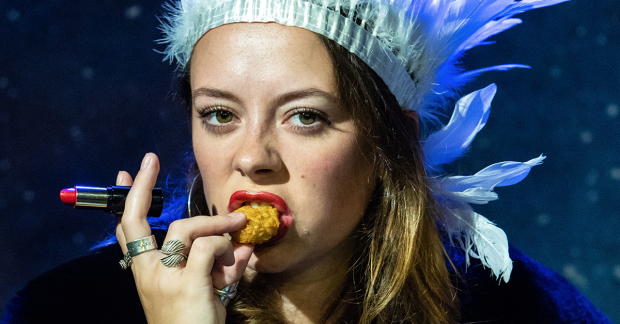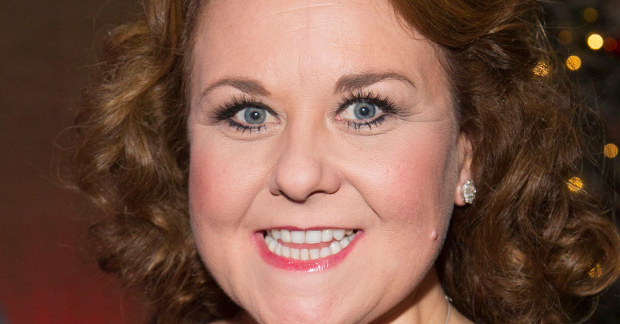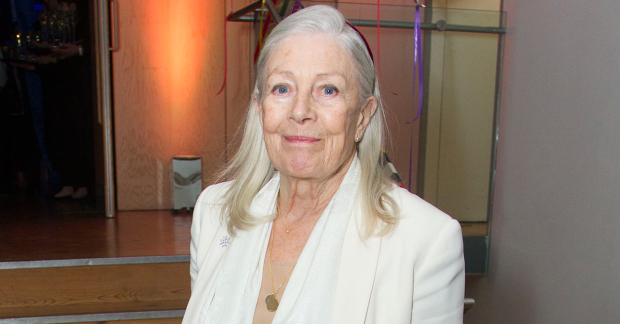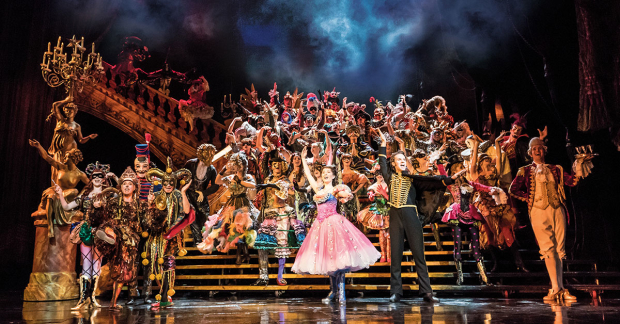Review: In Lipstick (Pleasance Theatre)
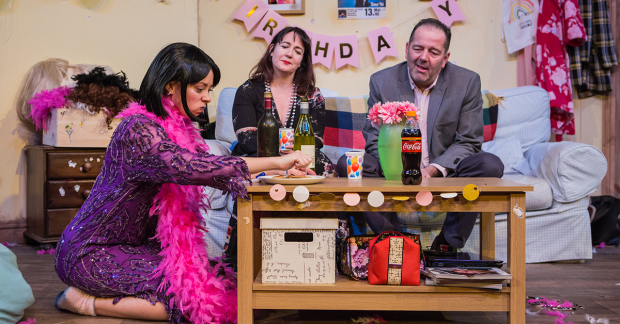
© Ali Wright
We meet Maud and Cynthia on the verge of a moment of change. Until now, this odd couple – a 40 year-old escapee from an abusive relationship and a 20 year-old with anxiety so severe that she never leaves the flat – have found a sort of refuge in each other. Their unsettling domestic dynamic – and Cynthia's linguistic precocity – are reminiscent of the work of Philip Ridley, but Annie Jenkins' script is leavened with a humour that offers both warmth and – at points – even a glimpse of hope for the future.
Much use is made of Delyth Evans' naturalistic revolving set as we shift from Maud's flat to the dingy park where she and Dennis – a security guard she met at the office – have their awkward first date, to Dennis' equally dingy front room, and back again. The frequent turn of the revolve offers a neat analogy for the passing of time as Maud and Dennis' relationship develops, leaving Cynthia increasingly isolated.
Maud and Dennis are never entirely credible as a couple, even once Maud's difficult past comes to light, but Caroline Faber and James Doherty are funny enough performers to allow us to overlook the mismatch between them. Director Alice Hamilton conjures an intensely awkward atmosphere for the couple's courtship scenes but the darkness and drama, when it comes, is handled less assuredly, let down by some clumsy physicality that feels under rehearsed.
Alice Sykes throws herself into the silliness that is Cynthia's escape from the world – doing a series of excruciating Shirley Bassey impersonations for her own and Maud's amusement – while also ably handling the more subtle side to Cynthia's character. The story of how Cynthia and Maud came into each other's lives doesn't really hold up, nor does the idea that they've muddled along together like this for as long as they have, but Sykes and Faber do their best with these dramaturgical flaws, and their shared scenes are absorbing as a result.
In Lipstick is at its strongest when Jenkins trusts the audience to come to their own conclusions about her characters' motivations. Which is why it's disappointing when, about two thirds of the way through the play, she uses two rather clunky narrative devices to suddenly explain everyone's back stories. The nuance is immediately lost and the remainder of the play is spent simply waiting for Maud, Cynthia and Dennis to fulfil the destinies suggested by their past behaviours.
That's not to say there aren't enjoyable moments in the play's concluding scenes. There are, particularly from Sykes, as Cynthia's anxiety causes her to switch into motor-mouth mode, and Faber, who steals the show with a beautifully tender final song. It's just that at the end of In Lipstick we're left wondering what we came here for.



